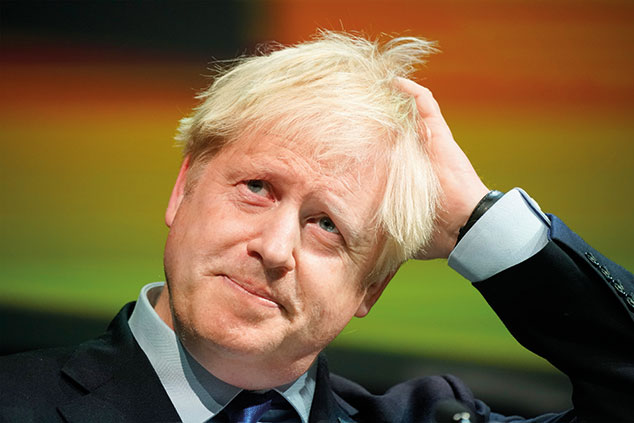
Good news, then, that there are a couple of questions we can give fairly definitive answers to. Here’s one for you: is Boris Johnson being controlled by a mysterious cabal of international financiers working to force a no-deal Brexit so that they can make vast profits from shorting the UK’s currency and equity markets? That the answer to this is “yes” is being taken as a given on social media. Even ex-chancellor Philip Hammond seems to give the idea some credence. Johnson, he says, is backed by financiers who “bet billions on a hard Brexit” and are therefore keen on an exit that produces maximum disruption. Hmmm.
The problem with the theory, as the Financial Times points out, is that “it doesn’t make any sense”. The stocks being shorted at the moment mostly have non-Brexit reasons for being shorted (they are over-leveraged or poorly managed in the main). At the same time the timelines are all wrong (no one has the faintest idea when this will all end). And, of course, the whole thing is too complicated. Hedge funds mostly like to bet on things that have a defined range of outcomes. Brexit has dozens of possible outcomes. Let’s say the cabal existed. Let’s say they somehow forced Johnson into a no-deal. It is not a given that the pound would then fall. What if, on 1 November, just as on 1 January 2000, the world did not end? Maybe sterling would bounce. It’s impossible to say. And that makes big bets stupidly risky.
It is easy to see where the impulse to attribute blame in this way comes from. We live, rather as in the 1930s, in an age of anger against big corporations, big banks, and anger with the idea that gangs of crony capitalists are conspiring against the rest of us. There is sense in some of this – finance is too powerful; globalisation has created too many losers in the developed world; and there does need to be a fightback against oligopolistic power.
But extending the knowledge that capitalism isn’t all it could be into the idea that Brexit is somehow being driven by a group of disaster-loving baddies (while comforting for Remainers still searching for an explanation as to why anyone would ever disagree with them) is just silly. Monied baddies have better (and easier) things to bet on. The answer to the question, then, is no. Boris Johnson is not being controlled by a mysterious cabal of international financiers. If only other questions on Brexit were so easy to answer.
Those of you who can’t cope with much more of this kind of thing should skip the magazine’s politics pages this week and turn to our homes for sale page, where we list some of the most remote properties for sale around the world today. The estate in Colorado should insulate you from Brexit chat pretty well. If you can’t stretch to that level of psychological protection, a nice calming walk in the woods might also help. And if you haven’t yet signed up for our wealth summit in November, go to moneyweekwealthsummit.co.uk to do so.